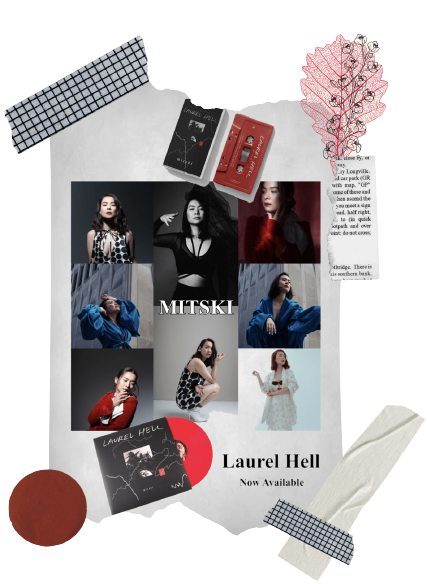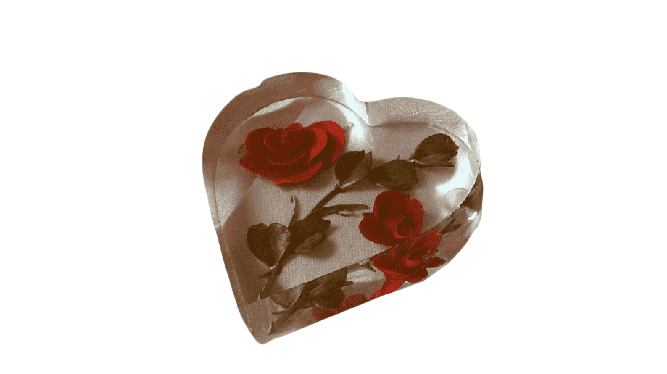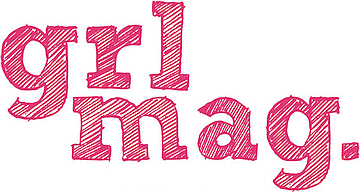
by Amira Aboudallah
Mitski is back, but with a new sonic sound. Though Mitski has explored different genres such as folk and indie, her sound has transformed into danceable anthems twinged with a sense of triumph.
VALENTINE, TEXAS
“Who will I be tonight? / Who will I become tonight?”
Mitksi starts the album with Valentine, Texas—a haunting melodious beginning spaced with fleeting thoughts. The breakthrough hits in the middle of the song, accompanied by lyrical imagery of mountains, clouds, and sand.
Valentine, Texas, painted by Mitski, seems to be desolate, perhaps an escape she seems to seek. I can’t help but feel a swirling emotion when listening to this song, like an amber sunset creeping in to end the day.

WORKING FOR THE KNIFE
“I always knew the world moves on / I just didn’t know it would go without me”
Who is the knife? The knife seems to shapeshift into different forms of pressure. A common one is the pressure to work to live. There is a lingering sense of grief to the kid who once wanted everything, but lost it all as reality began to sink in.
The pressure could also manifest itself in success, where one continues to chase the cycle of never being pleased, even after feeding the beast everything you’ve got. This seems to be all under the same capitalistic umbrella, which is why the element of nature seems to be a way to find solace in, away from the hustle and bustle.
Though the thematics of this song seem to be dark, there is a sense of clarity to acknowledging the dreams you’ve left behind—a personal awakening.
STAY SOFT
“You stay soft / Get beaten / Only natural to harden up”
This song begins with a smooth, buttery movement between notes. Though the song gets you to jump, the lyrics reel you in with feelings of unfulfillment. She ping-pongs between “stay soft” and “harden up”—two polar states of beings that are almost cyclical in nature. The vulnerability offered transforms into a hardened sense of self, which Mitski seems to emphasize in this album, in a far more “removed” version of herself.
From a feminist lens, Mitski brings up her role as a “sex god” which reveals her most vulnerable form of self is being exposed to someone. Her giving up a large part of herself becomes an ironic, self-aware, self-fulfilling prophecy. The upbeat tempo plays with the irony because of commentating on her actions. Her reaction becomes self-defense.
EVERYONE
“Sometimes I think I am free / Until I find I’m back in line again”
This is the third time in this album references “the dark” as this enigmatic being that seems to circulate through her life, convincing her of other things. What things? We’re not sure. The uncertainty seems to anthropomorphize.
Mitski seems to welcome a journey she thought she wanted, due to her own stubbornness. In turn, the journey takes more out of her than she anticipated, leaving her to succumb to a cycle. This cycle is keeping her from feeling free.
The beat in this song is threaded clearly throughout the peace, mimicking a rhythm that cannot be broken.
HEAT LIGHTNING
“There’s nothing I can do / Not much I can change /… I surrender”
The twangy, somber cowboy walking in the sunset feeling, creates an atmosphere of defeat. Her surrender seems to come in anticipation of defeat.
“Heat lightning / Watch it from my doorstep” seems to serve as a witness to demise. But Mitski lets nature run its course, surrendering before attempting to fix things.
Without context, the song can read as a worship one. In a way, it can be–perhaps not to the same omnipotent being people typically sing worship songs to—but rather herself, or to nature.
The nature motif makes an appearance again, with mention of trees swaying, sea anemones, storms, and of course, heat lightning.
THE ONLY HEARTBREAKER
“So I’ll be the loser in this game / I’ll be the bad guy in the play“
This 80’s synth ballad makes breaking up with someone seem like a not-so-bad thing. Jokes aside, the heartbreak anthem centers Mitski as the antagonist, something typically reserved for a masculine role.
This shift emphasizes Mitski’s role in the relationship, one that revolves around her taking the responsibility for all the mistakes.
The idealization and passiveness of her lover seem to feed into the frenzy Mitski feels. The frenzy can be heard towards the latter half of the piece, building up to an intensity that needs to burst. The action of being the “heartbreaker” is sonically translated, crescendoed, and left to falter.
LOVE ME MORE
“I could be a new girl / I will be a new girl”
Mitski’s desperation seems to reach its peak, with the buildup of fury and mistakes taking precedent. She frantically searches for a solution—begging—at a last off-shoot chance to salvage her relationship and herself.
Her desperation clings on to “cleaning her up” entering the realm to complete her. The yearning to become better for other people centralizes the song, with the chorus repeating to “love [her] more.”
This desire to want to change yourself completely resonates with a lot of women. The feeling Mitski projects of not feeling enough for a person is universal, and Mitski enters the realm of wanting to “drown [herself] out,” rendering a cycle of self-hatred.
THERE’S NOTHING LEFT HERE FOR YOU
“So go on to that sweetheart’s door / And find a new you”
Left with nothing else to give, Mitski reaches a soulful level, stripped back from the electric pop-song feeling.
Her existence has become static, tying back to the lyric of feeling like the world moves on without her from Heat Lightning, as she asks the listener to move on to a new “sweetheart.”
This song feels like a liminal space—adjacent to a transitory feeling, leaving us to wonder whether we should leave or not, like a reprise after a dramatic scene.
SHOULD’VE BEEN ME
“Must be lonely loving someone / Trying to find their way out of a maze”
The plot of this song can be pinpointed like a movie. Mitski opens by finding a “strange serenity” and is then shifted to seeing her former lover with someone that looked like her.
The replication of her is the central point of the song, twinged with regret that she wasn’t enough for her former lover. The musicality of the song mimics a musical, with meticulous stage cues and dynamic characters.
Her stand-offishness has caused her turmoil to others. She finds similar “fuller” versions of herself roaming around, which can lead to her breaking point where she’s fallen into herself.
I GUESS
“If I could keep anything of you, I would keep this quiet after you.”
The temperament of her album has cooled down at this point. Her self-reflective nature has taken over, almost like she’s gone through all five stages of grief.
This introspection allows her to mutter “thank you,” quite the opposite of the “sorry’s” she’s given us before. She has claimed her self-growth and she acknowledges that her rebuilding her life isn’t entirely a bad thing.
A confrontation with reality grounds us.
THAT’S OUR LAMP
“That’s where you loved me”
Though we know this is the end, Mitksi still remains triumphant. The jubilant feeling of independence and accepting the end has happened.
The 80s sound is back but never archaic.
Her repetition of “that’s where you loved me” conjures a supercut of her relationship. Though this is a defeat, she revels at this moment, drunken with what once was.
The beginning of this song is her leaving the apartment, looking up in the window, and staring at the lamp. Notably, she never returns to the apartment.
Hope lingers through the end—a victorious loss.

Check out “Laurel Hell” on Spotify, Apple Music, Tidal and More
the complete lineup

closing thoughts….
Mitki’s revamping of her “sad-girl” image gave us dreams for what the future would look like. “Laurel Hell” tells us—it’s all going to be okay.
“Laurel Hell” is now available on all streaming platforms.
art and graphics by moo kae, madison zeng, and billie abdullah
written by amira aboudallah
